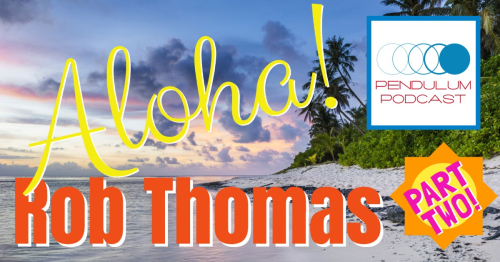In between talking about eminent domain-y songs, the goofy cult film “Snakes on a Plane” (yes, we really do have a cast-signed poster of that film in our office), and other fun stuff, we returned to the Pendulum Land Podcast for part II of our guest spot, where we also discussed Virginia Uranium, Inc. v. Commonwealth, No. CL15-623 (July 30, 2020), a recent decision from a Virginia trial court about regulatory takings and “damagings.”
[Stream the podcast above, or better yet, subscribe and become a regular listener. The podcast is both entertaining and informative.]
The Virginia Uranium case involves a long-standing — but “temporary” — moratorium on uranium mining, and the court’s order analyzes Palazollo, the Salt-peter case (Lord Coke alert!), Penn Central, and Lucas.
The court concluded that the inability to mine uranium was a damaging under the Virginia Constitution because it “directly affects Plaintiffs’ ability to exercise their right to their ownership and leasehold interest in the mineral estate[.]” Slip op. at 14.
The court also concluded this was not a Lucas taking because the moratorium does no more than duplicate the result that could have been achieved under Virginia nuisance and property law. Slip op. at 16.
Finally, applying the Penn Central ad hoc test, the court held that on balance, the three factors tipped in favor of the property owner: the 38-year moratorium, while temporary, is “extraordinary,” “all but extinguished” the owner’s rights to use its land, and “the moratorium has also dramatically decreased the value of the estate” (a reduction in value from $427 million to $1). Slip op. at 18. The owner’s “distinct” (not “reasonable”) investment-backed expectations were solid: it “poured millions of dollars into the development of this mining project, under the guise from the General Assembly that this moratorium is temporary and that they will eventually be able to mine uranium.” Slip op. at 10.
A property owner wins a Penn Central claim…rare good news! But here’s the not-so-good part: it it was too late for the property owner to bring a claim for compensation for the damaging and the taking because the statute of limitations expired, and the court (reluctantly) declined to declare the moratorium unconstitutional:
Accordingly, this Court cannot legislate against the will of the people as evidenced by the actions of the duly-elected General Assembly and by testimony before this Court. This decision was not made flippantly. On the contrary, this Court approached this important question with the utmost solemnity. After all, the right to property is interdependent with personal liberty. See AGCS, 293 Va. at 476. It is “the highest Right a Man hath or can have to any Thing.” G. Jacob, A New Law Dictionary (1st ed. 1729). This Court cannot emphasize this point strongly enough. But, even the highest rights cannot be used in a vacuum; we are not solitary creatures. Our actions impact those around us, and sometimes those actions must be hemmed in so as to protect others.
Plaintiffs ask this Court to declare Code § 45.1-283 unconstitutional, and therefore substitute this Court’s judgment for that of the legislature. Clearly, their property rights have been harmed, but the greater harm would be against the people. The common law supports it. Common sense supports it. To find otherwise would be untenable. This Court hereby finds in favor of Defendants.
Slip op. at 28 (footnote omitted).
We think this one is going up the chain, and if so, it could well be the first actual regulatory takings case under the Virginia Constitution. Stay tuned as we follow along.
Virginia Uranium, Inc. v. Commonwealth, No. CL15-623 (Cir. Ct., Wise Cty., July 30, 2020)
